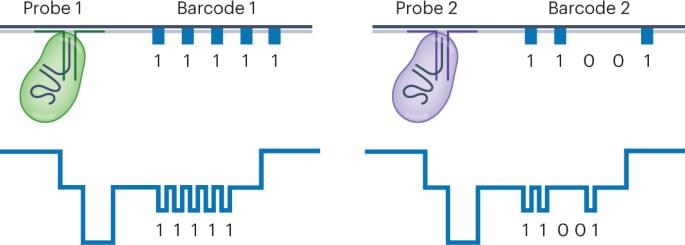From mRNA technology to T cell engagers, there were a number of advancements in cancer research in 2023.
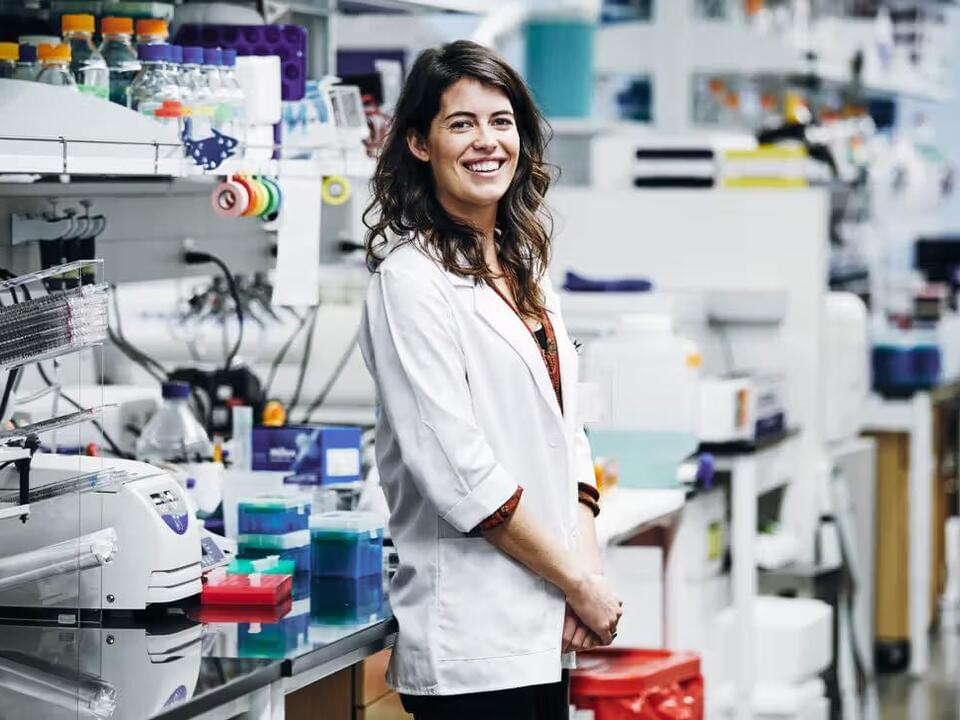

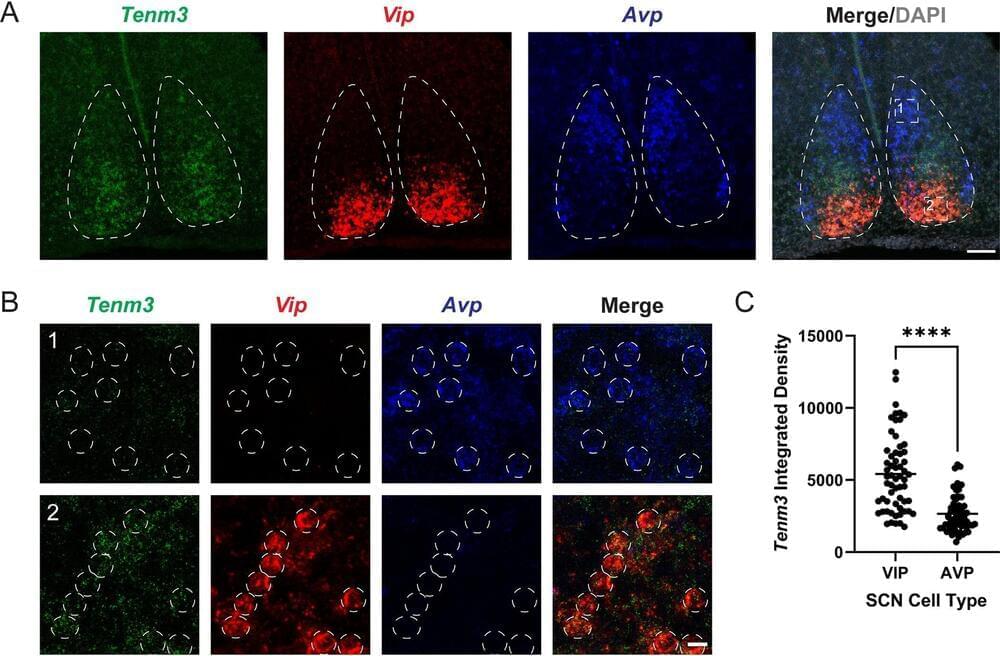
Scientists at the Johns Hopkins University School of Medicine and the National Institutes of Health have identified a protein in the visual system of mice that appears to be key for stabilizing the body’s circadian rhythms by buffering the brain’s response to light. The finding, published Dec. 5 in PLoS Biology, advances efforts to better treat sleep disorders and jet lag, the study authors say.
“If circadian rhythms adjusted to every rapid change in illumination, say an eclipse or a very dark and rainy day, they would not be very effective in regulating such periodic behaviors as sleep and hunger. The protein we identified helps wire the brain during neural development to allow for stable responses to circadian rhythm challenges from day to day,” says Alex Kolodkin, Ph.D., professor in the Johns Hopkins Department of Neuroscience and deputy director for the Institute for Basic Biomedical Sciences.
Kolodkin co-led the study with Samer Hattar, Ph.D., chief of the Section on Light and Circadian Rhythms at the National Institute of Mental Health.
Check out https://NordVPN.com/coolworlds for 4 months for free when you sign up today, thanks to Nord for sponsoring us!
Could there be a bizarre exotic type of star out there made of quarks? What would these things be like and how could they form? Join us as we explore quark stars, and the terrifying implications they have for forging strange matter within their cores…
Written & presented by Prof. David Kipping. Edited by Jorge Casas. Special thanks to Dr Sam Gregson (/ @badboyofscience) for fact checking our script.
→ Support our research: https://www.coolworldslab.com/support.
→ Get merch: https://teespring.com/stores/cool-wor…
→ Check out our podcast: / @coolworldspodcast.
THANK-YOU to D. Smith, M. Sloan, L. Sanborn, C. Bottaccini, D. Daughaday, A. Jones, S. Brownlee, N. Kildal, Z. Star, E. West, T. Zajonc, C. Wolfred, L. Skov, G. Benson, A. De Vaal, M. Elliott, B. Daniluk, M. Forbes, S. Vystoropskyi, S. Lee, Z. Danielson, C. Fitzgerald, C. Souter, M. Gillette, T. Jeffcoat, J. Rockett, D. Murphree, T. Donkin, K. Myers, A. Schoen, K. Dabrowski, J. Black, R. Ramezankhani, J. Armstrong, K. Weber, S. Marks, L. Robinson, S. Roulier, B. Smith, J. Cassese, J. Kruger, S. Way, P. Finch, S. Applegate, L. Watson, E. Zahnle, N. Gebben, J. Bergman, E. Dessoi, C. Macdonald, M. Hedlund, P. Kaup, C. Hays, W. Evans, D. Bansal, J. Curtin, J. Sturm, RAND Corp., M. Donovan, N. Corwin, M. Mangione, K. Howard, L. Deacon, G. Metts, G. Genova, R. Provost, B. Sigurjonsson, G. Fullwood, B. Walford, J. Boyd, N. De Haan, J. Gillmer, R. Williams, E. Garland, A. Leishman, A. Phan Le, R. Lovely, M. Spoto, A. Steele, M. Varenka, K. Yarbrough, A. Cornejo, D. Compos, F. Demopoulos, G. Bylinsky, J. Werner, B. Pearson, S. Thayer, T. Edris, A. Harrison, B. Seeley, F. Blood, M. O’Brien, P. Muzyka, E. Loomans, D. Lee, J. Sargent, M. Czirr, F. Krotzer, I. Williams, J. Sattler, J. Smallbon, B. Reese, J. Yoder, O. Shabtay & X. Yao.
REFERENCES

Industrial mishaps are not rare but caution is prime. Tesla’s CEO Elon Musk has lashed out at the media for sensationalizing an old injury caused by a robot at his Giga Texas factory in Austin, Texas. He claimed that the media was trying to link the incident to his futuristic Optimus robots, which he said would usher in a new era of abundance.
The incident, which happened two years ago, involved a software engineer who was programming software for robots that cut car parts from freshly cast aluminum. While he was working, he was unaware that one of the robots was still active while the other two were disabled for maintenance. The active robot then attacked the engineer, pinning him down and clawing at his back and arm. The attack left a trail of blood on the factory floor, as well as an open wound on the engineer’s left hand.
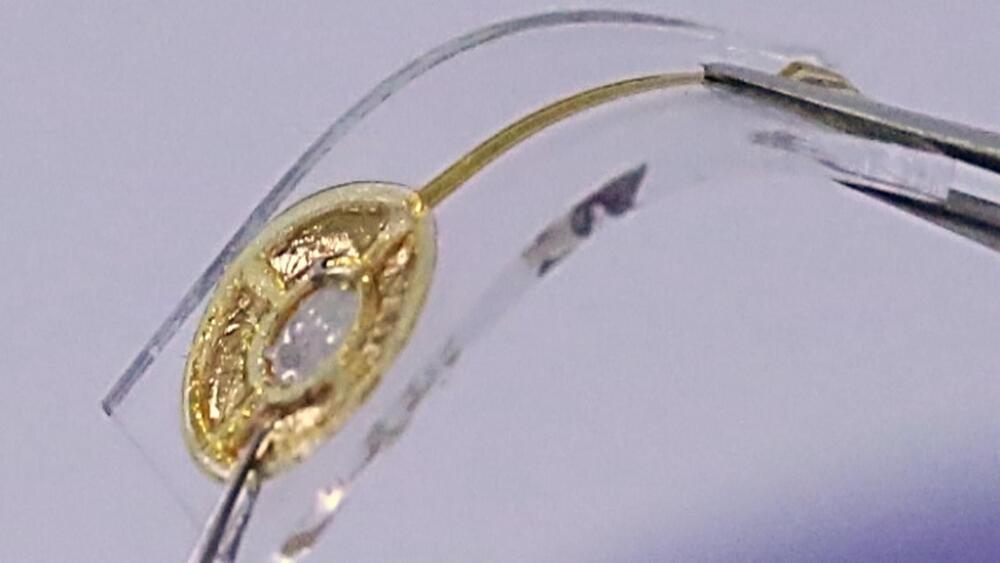
Scientists pave the way for new culinary frontiers.
This E-tongue can identify four tastes – saltiness, sourness, astringency, and sweetness – in just a tiny bit of food, and uses deep-learning technology to understand taste. It even works well with different kinds of wines.
The E-tongue is like a super tool that can be used in different industries like food, drinks, makeup, and medicine, explained the researchers in a press release by Daegu Gyeongbuk Institute of Science & Technology (DGIST).
“The novel technology developed in this study is an electronic tongue system that integrates sensors and deep learning and measures complex flavors, and it is a sensor-deep-learning technology that can quantitatively evaluate taste, which was difficult in the past,” said Professor Kyung-In Jang from the DGIST Department of Robotics and Mechanical and Electronic Engineering.

In the Lord of the Rings, there was “one ring to rule them all.” Now, a team of researchers is developing their own single ruler, an approach to CAR T-cell therapy that could treat all forms and types of blood cancer.
In experiments in mouse models of different blood cancers, the treatment rapidly eliminated tumors, including in mice with acute myeloid leukemia (AML), a difficult-to-treat type of blood cancer for which researchers have struggled to develop effective immunotherapies.
There was also no evidence of serious side effects in the animals. And, finally—and distinctly from the standard approach to current CAR T-cell therapies—it provided the mice with a healthy supply of new blood cells.
Previously, researchers have used implants surgically placed in the brain or bulky, expensive machines to translate brain activity into text. The new approach, presented at this week’s NeurIPS conference by researchers from the University of Technology Sydney, is impressive for its use of a non-invasive EEG cap and the potential to generalize beyond one or two people.
The team built an AI model called DeWave that’s trained on brain activity and language and linked it up to a large language model—the technology behind ChatGPT—to help convert brain activity into words. In a preprint posted on arXiv, the model beat previous top marks for EEG thought-to-text translation with an accuracy of roughly 40 percent. Chin-Teng Lin, corresponding author on the paper, told MSN they’ve more recently upped the accuracy to 60 percent. The results are still being peer-reviewed.
Though there’s a long way to go in terms of reliability, it shows progress in non-invasive methods of reading and translating thoughts into language. The team believes their work could give voice to those who can no longer communicate due to injury or disease or be used to direct machines, like walking robots or robotic arms, with thoughts alone.
CRISPR had a huge year. Even better, it’s still a work in progress, with the potential to reshape biotechnology for decades to come.
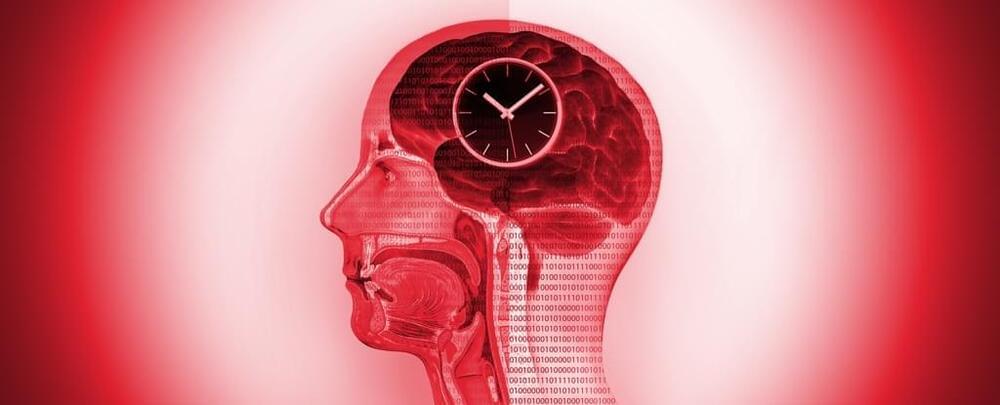
Scientists looking to tackle our ongoing obesity crisis have made an important discovery: Intermittent fasting leads to significant changes both in the gut and the brain, which may open up new options for maintaining a healthy weight.
Researchers from China studied 25 volunteers classed as obese over a period of 62 days, during which they took part in an intermittent energy restriction (IER) program – a regime that involves careful control of calorie intake and fasting on some days.
Not only did the participants in the study lose weight – 7.6 kilograms (16.8 pounds) or 7.8 percent of their body weight on average – there was also evidence of shifts in the activity of obesity-related regions of the brain, and in the make-up of gut bacteria.
